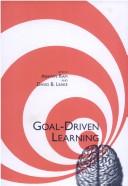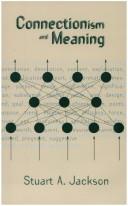| Listing 1 - 10 of 58 | << page >> |
Sort by
|
Book
ISBN: 1665454598 1665454601 Year: 2022 Publisher: Piscataway, New Jersey : IEEE,
Abstract | Keywords | Export | Availability | Bookmark
 Loading...
Loading...Choose an application
- Reference Manager
- EndNote
- RefWorks (Direct export to RefWorks)
Book
Year: 2021 Publisher: New York, NY : Association for Computing Machinery,
Abstract | Keywords | Export | Availability | Bookmark
 Loading...
Loading...Choose an application
- Reference Manager
- EndNote
- RefWorks (Direct export to RefWorks)
Book
ISBN: 110717001X 1280815701 9786610815708 0511274815 051127551X 0511273282 051132149X 0511618794 0511274076 Year: 2007 Publisher: Cambridge : Cambridge University Press,
Abstract | Keywords | Export | Availability | Bookmark
 Loading...
Loading...Choose an application
- Reference Manager
- EndNote
- RefWorks (Direct export to RefWorks)
The goal of learning theory is to approximate a function from sample values. To attain this goal learning theory draws on a variety of diverse subjects, specifically statistics, approximation theory, and algorithmics. Ideas from all these areas blended to form a subject whose many successful applications have triggered a rapid growth during the last two decades. This is the first book to give a general overview of the theoretical foundations of the subject emphasizing the approximation theory, while still giving a balanced overview. It is based on courses taught by the authors, and is reasonably self-contained so will appeal to a broad spectrum of researchers in learning theory and adjacent fields. It will also serve as an introduction for graduate students and others entering the field, who wish to see how the problems raised in learning theory relate to other disciplines.
Book
ISBN: 3732989240 9783732989249 Year: 2024 Publisher: Berlin, Germany : Frank & Timme GmbH Verlag,
Abstract | Keywords | Export | Availability | Bookmark
 Loading...
Loading...Choose an application
- Reference Manager
- EndNote
- RefWorks (Direct export to RefWorks)
Computational intelligence. --- Computational learning theory --- Statistical methods.
Book
ISBN: 9781638283270 1638283273 Year: 2024 Publisher: Norwell, MA : Now Publishers,
Abstract | Keywords | Export | Availability | Bookmark
 Loading...
Loading...Choose an application
- Reference Manager
- EndNote
- RefWorks (Direct export to RefWorks)
Covering both empirical and oracle PAC-bounds, this book serves as a primer for students and researchers who want to get to grips quickly with the subject.
Book
ISBN: 1837631085 9781837631087 Year: 2023 Publisher: Birmingham, UK : Packt Publishing Ltd.,
Abstract | Keywords | Export | Availability | Bookmark
 Loading...
Loading...Choose an application
- Reference Manager
- EndNote
- RefWorks (Direct export to RefWorks)
Computational thinking helps you to develop logical processing and algorithmic thinking while solving real-world problems across a wide range of domains. It's an essential skill that you should possess to keep ahead of the curve in this modern era of information technology. Developers can apply their knowledge of computational thinking to solve problems in multiple areas, including economics, mathematics, and artificial intelligence. This book begins by helping you get to grips with decomposition, pattern recognition, pattern generalization and abstraction, and algorithm design, along with teaching you how to apply these elements practically while designing solutions for challenging problems. You’ll then learn about various techniques involved in problem analysis, logical reasoning, algorithm design, clusters and classification, data analysis, and modeling, and understand how computational thinking elements can be used together with these aspects to design solutions. Toward the end, you will discover how to identify pitfalls in the solution design process and how to choose the right functionalities to create the best possible algorithmic solutions. By the end of this algorithm book, you will have gained the confidence to successfully apply computational thinking techniques to software development.
Book
ISBN: 110771396X 0511604238 0511603452 0511651538 0511800479 0511602677 Year: 2009 Publisher: Cambridge, UK ; New York : Cambridge University Press,
Abstract | Keywords | Export | Availability | Bookmark
 Loading...
Loading...Choose an application
- Reference Manager
- EndNote
- RefWorks (Direct export to RefWorks)
Sure to be influential, this book lays the foundations for the use of algebraic geometry in statistical learning theory. Many widely used statistical models and learning machines applied to information science have a parameter space that is singular: mixture models, neural networks, HMMs, Bayesian networks, and stochastic context-free grammars are major examples. Algebraic geometry and singularity theory provide the necessary tools for studying such non-smooth models. Four main formulas are established: 1. the log likelihood function can be given a common standard form using resolution of singularities, even applied to more complex models; 2. the asymptotic behaviour of the marginal likelihood or 'the evidence' is derived based on zeta function theory; 3. new methods are derived to estimate the generalization errors in Bayes and Gibbs estimations from training errors; 4. the generalization errors of maximum likelihood and a posteriori methods are clarified by empirical process theory on algebraic varieties.
Computational learning theory --- Geometry, Algebraic. --- Statistical methods.

ISBN: 0262181657 0262680831 0262282046 0585038538 9780262282048 9780585038537 9780262181655 9780262680837 Year: 1995 Publisher: Cambridge (Mass.) : MIT press,
Abstract | Keywords | Export | Availability | Bookmark
 Loading...
Loading...Choose an application
- Reference Manager
- EndNote
- RefWorks (Direct export to RefWorks)
In cognitive science, artificial intelligence, psychology, and education, a growing body of research supports the view that the learning process is strongly influenced by the learner's goals. The fundamental tenet of goal-driven learning is that learning is largely an active and strategic process in which the learner, human or machine, attempts to identify and satisfy its information needs in the context of its tasks and goals, its prior knowledge, its capabilities, and environmental opportunities for learning. This book brings together a diversity of research on goal-driven learning to establish a broad, interdisciplinary framework that describes the goal-driven learning process. It collects and solidifies existing results on this important issue in machine and human learning and presents a theoretical framework for future investigations. The book opens with an an overview of goal-driven learning research and computational and cognitive models of the goal-driven learning process. This introduction is followed by a collection of fourteen recent research articles addressing fundamental issues of the field, including psychological and functional arguments for modeling learning as a deliberative, planful process; experimental evaluation of the benefits of utility-based analysis to guide decisions about what to learn; case studies of computational models in which learning is driven by reasoning about learning goals; psychological evidence for human goal-driven learning; and the ramifications of goal-driven learning in educational contexts. The second part of the book presents six position papers reflecting ongoing research and current issues in goal-driven learning. Issues discussed include methods for pursuing psychological studies of goal-driven learning, frameworks for the design of active and multistrategy learning systems, and methods for selecting and balancing the goals that drive learning. A Bradford Book.

ISBN: 0585225419 9780585225418 1567501583 Year: 1996 Publisher: Norwood, N.J. Ablex
Abstract | Keywords | Export | Availability | Bookmark
 Loading...
Loading...Choose an application
- Reference Manager
- EndNote
- RefWorks (Direct export to RefWorks)
This book is a theoretical investigation into meaning - computationally driven, philosophically inspired and psychologically motivated. Concepts from formal and psychological semantics, the philosophy of mind and computational theory are examined and combined within the burgeoning new framework of connectionist cognitive science.
Cognitive psychology --- Artificial intelligence. Robotics. Simulation. Graphics --- Computational learning theory. --- Philosophy of mind. --- Cognitive science. --- Connectionism --- Data processing. --- Computational Learning Theory --- Philosophy Of Mind --- Cognitive Science --- Computers --- Philosophy --- Science --- Psychology --- Computational learning theory --- Philosophy of mind --- Cognitive science

ISBN: 0323137709 1299196551 1558601465 Year: 1990 Publisher: San Mateo, Calif. : Morgan Kaufmann Publishers,
Abstract | Keywords | Export | Availability | Bookmark
 Loading...
Loading...Choose an application
- Reference Manager
- EndNote
- RefWorks (Direct export to RefWorks)
COLT Proceedings 1990
| Listing 1 - 10 of 58 | << page >> |
Sort by
|

 Search
Search Feedback
Feedback About UniCat
About UniCat  Help
Help News
News